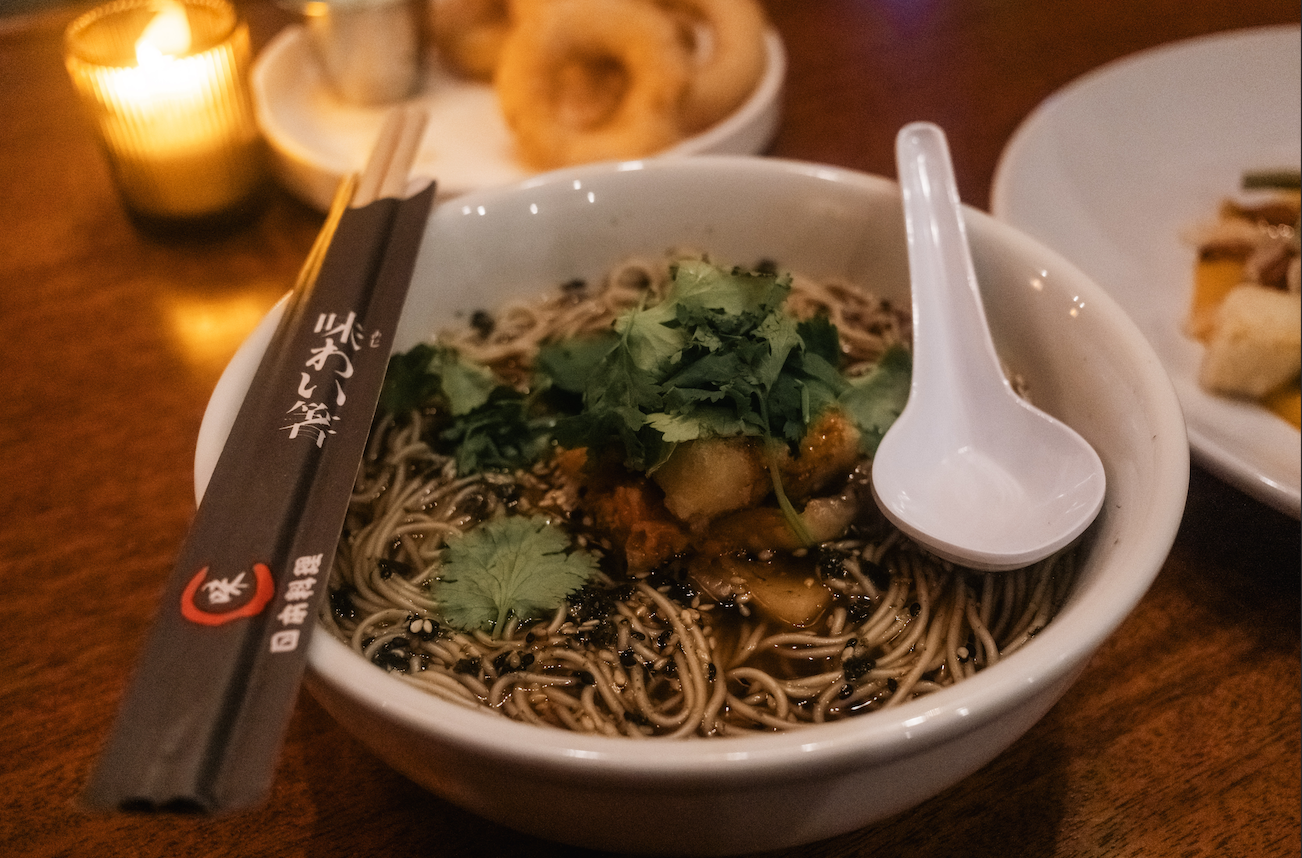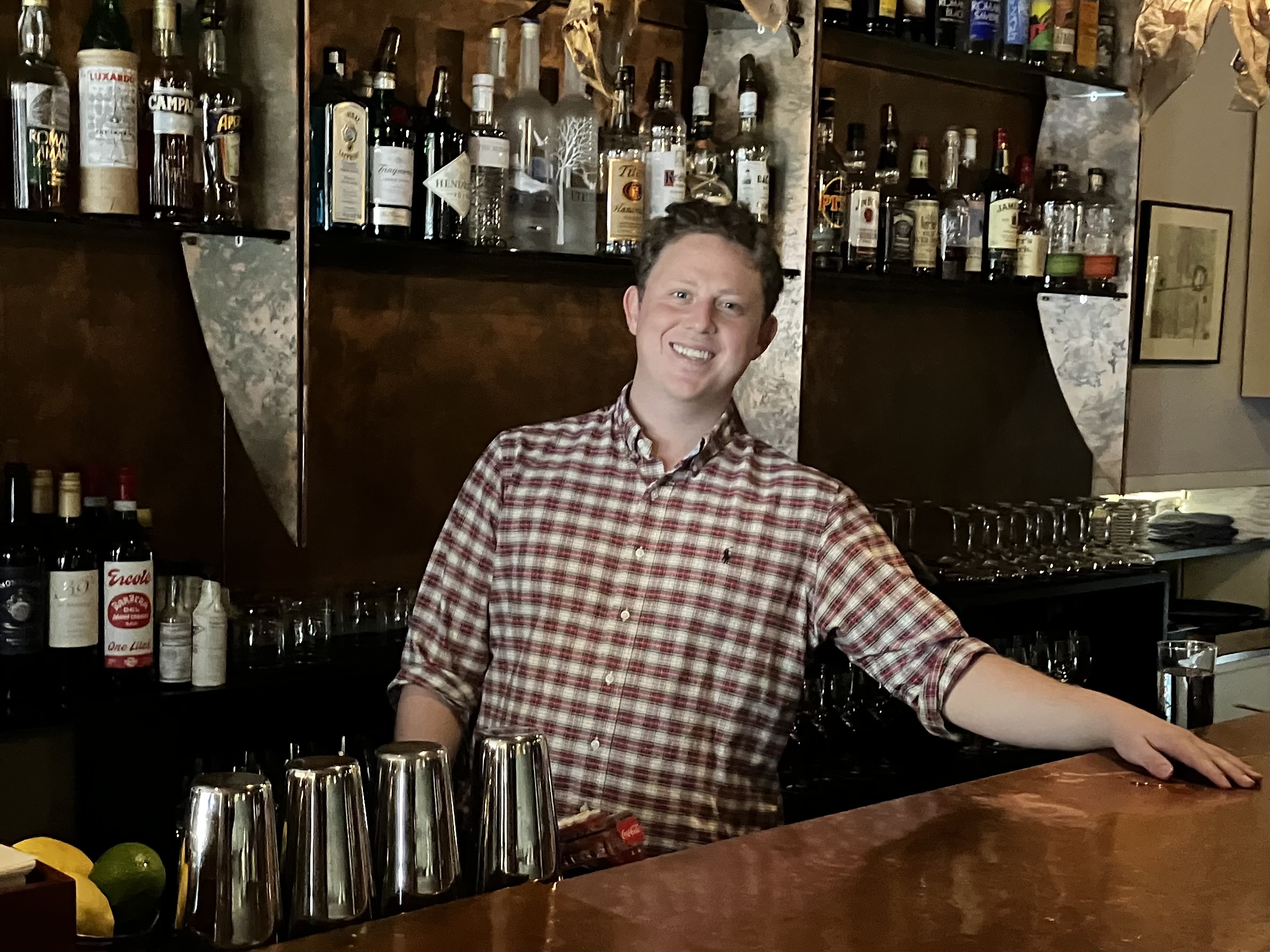The Indigenous Food Lab Market, the latest project from NĀTIFS and Owamni’s Sean Sherman, opens today in the Midtown Global Food Market. The market offers an array of food, health, and beauty products from Indigenous-owned vendors from around the country.
“This is planting a seed for what is possible for Indigenous food access in the future. Our first market is just the beginning,” said Sherman.
Sherman's culinary work, which goes back to Minnesota's first Native food truck, Tatanka Truck, has always centered on educating people on Indigenous food and giving Indigenous people greater access to their own food. Sherman ran the food truck with Vern DeFoe who is now Indigenous Food Lab's culinary program specialist.
The market is having a grand opening today from 4:30 - 7 p.m. The grand opening includes a drum performance, an opening blessing, and food samples.
Their menu includes a variety of food and drinks made in-house. Try the iced chaga latte and a sunflower cookie for an afternoon snack. They also offer a build-your-own taco, čhoǧíŋyapi (corn) sandwich, and indigenous grain bowl options. Salads, soup, and sweets are also available. Colonial ingredients (also known as ingredients that weren’t in North America before Europeans arrived) like dairy, sugar, and wheat are absent in Indigenous Food Lab menu items.

The Native vendors at the Indigenous Food Lab Market include:
- Ramona Farms, located in Arizona, will sell their heirloom seeds. Ramona Farms notably grow and sell tepary beans, which are hard to find despite being grown on this land for thousands of years. “They're very hardy. They're drought resistant,” Jason Garcia, manager of Indigenous Food Lab Market said. “They're a food that will probably be able to be grown despite climate change, because it's been grown in very harsh conditions.”
- The Ioway Bee Farm, owned by the Ioway tribe, will be the market’s honey vendor. They started their business in 2017 and offer a particularly rich brand of honey. “It is amazing honey,” Garcia said.
- Red Lake Nation supplies the market with syrups, jellies, and two different kinds of wild rice – hand-harvested and cultivated. Garcia said the hand-harvested rice has a nuttier taste to it.
- Bidii Baby Foods, which makes hot cereal for babies. The cereal is corn and squash based. “Those are traditional foods that people in the Southwest would feed to their babies,” Garcia said.
The market will also have a health and wellness section. Native vendors Sakari Farms, Dancing Butterfly, Aonech Aonech, and Growing Blue Flowers supply an array of products including soaps, lotions, and bath products– and, of course, lip balm.
“Something that’s very popular in Minnesotan culture but also in Native culture is lip balms,” Garcia said. “So we put those all together up here from our different manufacturers.” Garcia points to the top of the shelving, where all the lip balms sit together, including a delightful looking sweetgrass variety that I can’t wait to try.

Taking in the long list of vendors Garcia listed off, I wondered how a collection of Native-owned vendors came to be.
“It was a long process,” Garcia explained, “because there isn’t an essential clearing house for Native-made goods. A lot of these vendors, you can tell by their packaging, some do a lot of volume, some don’t.”
Indigenous Food Lab Market wants to be a resource for others who want to improve access to Native foods by sharing the road map for connecting with Native-owned vendors.
The market also sources routinely-ordered products from multiple sources so they’re not overburdening the ecosystem in any given area.
“We also don’t want to overtax our vendors,” Garcia said. “Which is why we don’t have just one wild rice vendor, or don’t don’t have just one maple syrup vendor.”
They don’t want vendors to create dependencies on specific businesses.
“If we were to, say, go to Native Wise [a market vendor] and start saying we need hundreds of pounds of your product, that might be difficult for them. And it might cause them to start over-harvesting in their area to try to meet our demand,” Garcia explained. “And then even with that, there may be a point where we say ‘You know what? We need even more, so we're just not going to use you anymore. We found this other place. They can do more.’ And by then we would have created a dependency.”
If you want to learn more, the Indigenous Food Lab Market website lists its vendor offerings.
The Indigenous Food Lab Market is located in the Midtown Global Market at 920 E. Lake Street. They are open Monday-Saturday, 10 a.m. - 6 p.m., and will serve hot food Tuesday-Saturday 10 a.m. - 6 p.m.

.jpg)







